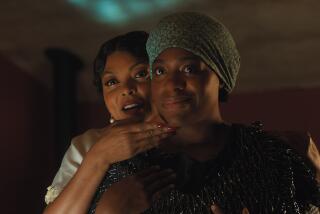In the context of no-context
If there’s anything that sends me into a vortex of nihilism and despair faster than getting a Shania Twain song stuck in my head, it’s starting to think about “Within the Context of No-Context.” The seminal essay, by George W.S. Trow, is a doomsday prophecy about the corrosive effects of electronic media. It’s also turned out to be a massive understatement.
Still, it takes a week like the one we’ve just had to be reminded of its prescience. Taking up the entire feature well of one issue of the New Yorker in 1980, “Within the Context” predates the blogosphere. It’s pre-MTV, pre-24-hour news cycle, pre-reality show. Despite the relative innocence of the era, Trow sees TV as an agent of psychological and cognitive destruction. “The work of television,” his central argument states, “is to establish false contexts and to chronicle the unraveling of existing contexts; finally, to establish the context of no-context and to chronicle it.”
And to think he wrote that having never read Gawker or watched Fox News or “The Daily Show.”
Don’t get me wrong, I like watching video montages of President Bush using the word “awesome” as much as the next person. But I’m also beginning to wonder if taking words and phrases out of context, of putting them into manufactured “meta” contexts, has stopped functioning as a national sport and become something closer to an official language.
Let’s take the firestorm surrounding Hillary Rodham Clinton’s comments about the assassination of Robert Kennedy. She made the remarks during a May 23 meeting with the editorial board of the Argus Leader, a newspaper in Sioux Falls, S.D. It was streamed live on the Argus Leader website, and staffers at the New York Post sent it ricocheting its way to infamy.
Not the substance of the meeting, mind you. The transcript ran just under 7,500 words. But the part that was repeated, amplified and dissected on a nearly around-the-clock basis was made up of 44 words Clinton used to answer the question of why she hadn’t dropped out of the Democratic presidential race.
Here they are: “You know my husband did not wrap up the nomination in 1992 until he won the California primary somewhere around the middle of June. We all remember Bobby Kennedy was assassinated in June in California. Um, you know I just, I don’t understand it.”
Thanks to what happened next, the American public didn’t understand things either. Within hours of appearing online, the editorial board session had been boiled down to the notion that she was hanging on because she suspected Barack Obama might be assassinated.
That’s an awful thing to say, and, as it happens, Clinton never said it. But no matter. In the 2008 version of “Within the Context of No-Context,” it’s not just slips of the tongue that are fair game. Pundits, bloggers and other chatterers are now also allowed to imagine what public figures are thinking and to invent conspiracy theories accordingly. Whether it’s a candidate’s sartorial tastes (pantsuits! flag pins!) or a few ill-chosen words that, in the pre-blogospheric era, would have died a natural death, a lot of election coverage has more to do with pretending to read people’s minds than with attempting to distill the facts.
And it multiplies. Take the case of Fox News’ Liz Trotta, who, while talking about Clinton’s gaffe, accidentally said “Osama” instead of “Obama,” and then made a disastrous attempt to recover by joking that both men should be “knocked off.” Public indignation ensued, followed by an apology (“I fell all over myself ... and I sincerely regret it”), followed by an online petition for Trotta’s resignation and countless suggestions that she should be investigated by the Secret Service.
Come on, folks. It’s one thing to harbor ideological disgust for Fox News or to be exasperated (or ideologically disgusted) by Clinton. It’s quite another to ignore the context and pretend these incidents reveal genuine malice. Anyone who watched Trotta’s entire segment (try YouTube under the effusively punctuated heading “Fox News Contributor, Liz Trotta, Wants Obama to Die”) can see she’s merely a right-wing pundit lady of a certain age, not a likely assassin. By the same token, to read the entire transcript from Clinton’s meeting with the Argus Leader (still available on the paper’s website) is to encounter dozens of cogent points buried by one weird fragmentary thought unstoppably bound for the headlines even as it passed Clinton’s lips.
“Television is the force of no-history, and it holds the archives of the history of no-history,” Trow wrote. It’s tempting, 28 years on, to substitute “blogosphere” for “television” and tell ourselves we’re dealing with the same beast. But I suspect that won’t even begin to cover it. In the meantime, I’m going to return to that Shania Twain loop in my brain. There’s something to be said for lesser evils.
--
More to Read
Only good movies
Get the Indie Focus newsletter, Mark Olsen's weekly guide to the world of cinema.
You may occasionally receive promotional content from the Los Angeles Times.







